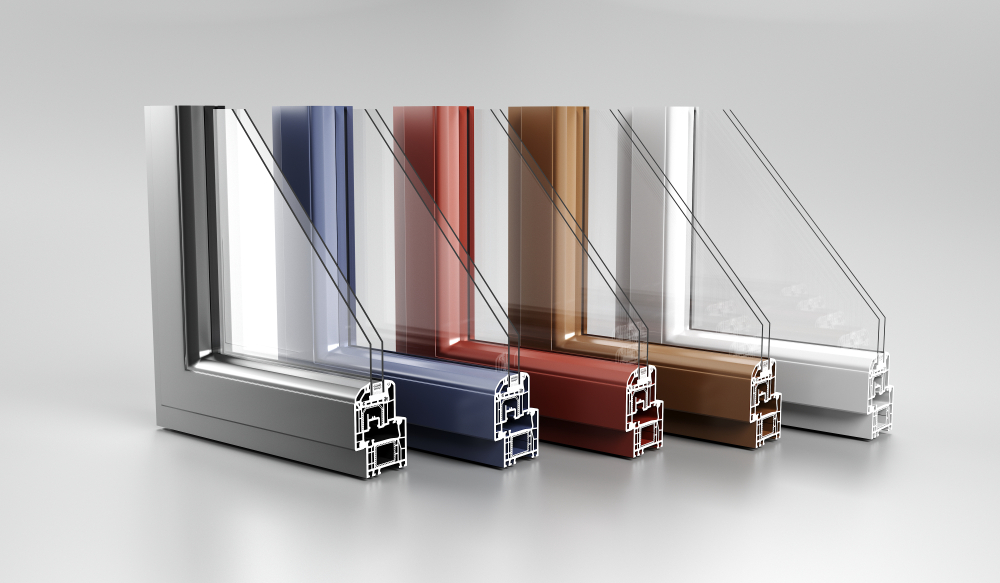UPVC vs Aluminium Windows Cost - which is cheaper?
UPVC and aluminium windows have very different price points and contrasting properties, so it's important to understand the pros and cons, so you make an informed choice about the right window frames for your home!
As an indication, comparable costs look like this:
| UPVC | Aluminium | |
| Casement window | £200 - £900 | £500 - £975 |
| Tilt and turn window | £300 - £700 | £1,250 - £3,000 |
| Sash window | £700 - £1,100 | £1,000 - £3,000 |
Looking for an accurate cost comparison of UPVC or aluminium windows? Fill out the form below and we'll put you in touch with local window fitters who can advise you - compare costs for free! Time complete - 30 seconds.
Factors That Impact the Cost of UPVC vs Aluminium Windows
UPVC is much more affordable than aluminium, but the denser metal frames have advantages such as extremely tough security features.
Multiple variables will impact your accurate window quotation:
- The size of the frame.
- How large each window is.
- Which floor your window is on.
- Your selected glazing type.
- How many windows you are replacing.
- The location of your property.
- The condition of the existing frames.
Installation costs can also vary because a window fitter will need to check how much additional work is required - such as removing an old damaged frame, making good on the plaster and cutting through if you fit a window into a brick wall.
Overall, aluminium is a bigger investment but should last for longer. The caveat is that metal can be prone to corrosion, so maintenance is essential.
Both UPVC and aluminium are durable, fairly easy to clean, and insulative. The decision may come down to the aesthetic you prefer for your property and how much you have to spend.
Get quotes for new windows
See how we work below.
Additional Considerations in Choosing Between UPVC vs Aluminium Windows Costs
We'll look at the pros and cons of each window choice shortly, but it might be useful to compare aluminium and UPVC side by side if you're stuck on which option to choose.
- Aluminium, if properly maintained, has the longest possible lifespan of a window frame (both UPVC and metal will last longer than timber). UPVC wins from a cost perspective because it's undoubtedly the most affordable window type.
- Both frames are easy to clean without an extensive amount of maintenance.
- UPVC is highly durable, and aluminium is an excellent security feature.
- Either frame will boost your energy efficiency and prevent heat wastage with a modern double or triple-glazing glass installation.
If cost is your main focus, UPVC is by far more inexpensive than any other frame material, and it's very reliable, insulative and secure, without being vulnerable to poor weather or dampness.
The positive aspect of aluminium is that the frames should last for many years, so they probably won't need replacing as soon as UPVC windows (typically, they last 20 - 30 years, with most window fitters offering 20-year guarantees).
There is a compromise in grey UPVC - the UPVC is treated during manufacture so that the colour won't fade, chip or dull over time.
Advantages of Aluminium Windows
Aluminium is less common than UPVC, although becoming more popular, often with renovations and new builds seeking a contemporary external look.
Some of the advantages of choosing aluminium frames include:
- Excellent longevity - professionally fitted aluminium windows should last for decades without warping, shifting or corroding.
- Eco-friendly points - aluminium is 100% recyclable, so older frames can be recycled when it comes to replacing the panels.
- Energy-efficiency - insulation properties are favourably rated, keeping your home warm and protecting against heat loss through the glazing.
- Design choice - although aluminium is silver metal, window frames can be treated with a huge range of colours, textures and finishes using a powder coating technique.
Most aluminium frames will last 30 to 40 years and require minimal maintenance to remain in good condition.
The thermal break mechanism in the frame means that there is a barrier between each layer of glass, making the window very difficult to break and providing outstanding thermal insulation.
If you're concerned about the conductive nature of aluminium, you needn't be - the barrier is built from insulative material that prevents heat transfer between any parts of the window unit.
You can use aluminium frames in both conversation areas and on listed properties (with the requisite approval) since the material is versatile and available in most window styles.
Disadvantages of Aluminium Windows
There aren't many pitfalls to aluminium windows, aside from the higher cost compared to UPVC.
However, there are a few practicalities to bear in mind:
- Although quality aluminium windows should last for decades, there is a caveat - properties near the coast often find that the frames start to erode far more quickly than inland due to the high salt content.
- Marine-grade powder coating can avoid the issue, although it may be more expensive.
- Aluminium windows cannot be easily repaired - a timber window can be sanded down or filled if there is any damage. You cannot paint aluminium, so damage, scratches or dents incur costs for a professional repair job.
These points aside, the big drawback is the cost. Aluminium window frames are significantly more expensive to manufacture than UPVC and aren't necessarily available through every window fitter.
It's essential to pick quality aluminium windows since the conductive qualities of the material means it's a good heat conductor and can lead to condensation and dampness.
Therefore, a professional window fitter and premium frames with thermal breaks are necessary for an aluminium window to work within a modern property.
Advantages of UPVC Windows
Moving onto UPVC, this is a far more common window type and available in standard white or a huge range of colours, including wood grain effect.
Some of the properties are fairly similar to aluminium:
- UPVC is low cost and durable, lasting for 20+ years without maintenance. The frames are built to endure any weather conditions and are secure, with double-glazed panels and steel framing underneath the plastic.
- The material is a great insulator, so it won't let heat in or out and can reduce your utility bills, and heating costs quite significantly.
- Good glazing helps reduce noise from outside, and an additional acoustic glass option or secondary glazing can further mitigate any sound pollution.
- Frames are lightweight and easy to manoeuvre - they're also widely available, so you'll often have lower labour costs and delivery charges than for a more cumbersome frame.
If you'd like an environmentally friendly option, you can even order UPVC windows made from recycled plastics to prevent old frames from ending up in landfills and boost your eco-friendly credentials!
The frames don't need painting, varnishing or sealing, and will remain in perfect condition for years.
Disadvantages of UPVC Windows
Much depends on whether you go for the standard white UPVC frames or a coloured / wood grain effect window unit.
Although white looks fresh, modern and clean, some people dislike the appearance and may prefer a coloured frame - this can be more expensive but still more affordable than an aluminium window.
Experienced window fitters often give a 20+ year guarantee, but it's important to verify this and check whether the warranty includes installation work or solely the unit and glazing.
The primary reason people opt for a window other than UPVC is that they have a period property and need a unit in keeping with the style and period of their home.
From a cost perspective, choosing coloured or treated UPVC is often more feasible than a timber frame, which most planning officers will accept as a more energy-efficient upgrade while replicating the original appearance.
Ultimately, the decision depends on how much you would like to spend, the styles and windows you prefer, and any specific requirements such as noise protection.
Your window fitter will often be able to provide comparable quotations for the same windows and glazing but with alternative frames to help you decide which option is the best fit.
Checkout this video which walks you through the differences between aluminium, uPVC and wood windows:
Frequently Asked Questions - UPVC vs Aluminium Windows Cost
Next, we've run through some of our frequently asked questions to answer your queries about choosing between UPVC and aluminium windows.
Are PVC and UPVC the Same Thing?
No, PVC and UPVC are both lightweight plastics, but they're not identical! PVC is strong and flexible, normally used in pipework and other applications.
UPVC window frames are harder and not flexible, but still affordable, so they are the most popular and common option for homeowners to replace old windows or build a new property.
What Appearance Do You Get With Aluminium Windows?
Incredibly popular with renovations and modern home improvements, aluminium windows are a feature - they look delicate and minimalist with a sleek design. Still, they are extremely strong and a very secure form of window unit.
How Are UPVC Window Frames Made?
UPVC (also known as unplasticised polyvinyl chloride) is used throughout building and glazing because it's affordable and resistant to weather, damage and impacts.
Most new homes are built with UPVC, as it has excellent energy-efficiency performance standards and can be designed to replicate older window materials with coloured frames or effects.
You can order UPVC windows with glazing in all the standard window styles, from bay windows to casements, sash windows to skylights in your attic.
Get quotes for new windows
See how we work below.


